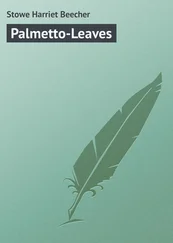Meanwhile, I helped his son, Peter Shaimaiyuk, load five electric guitars and several sacks of mail into the cargo hold. The guitars were going to Winnipeg for repair.
Yet something was very wrong here. Something was not going well. Edward was now staring at the horizon. Studying it. Looking over now and then, Peter, in turn, studied his father’s expression.
Though he’d calmed down a little, Edward kept repeating a phrase in Inuit, and finally I asked Peter what it meant.
“It’s my father’s biggest fear,” he said. “His biggest worry. And it’s the reason he’s not going anywhere today. He’s not going to fly, I’m sure of it.”
“Would he mind if I knew why?”
“It’s hard to put in English,” Peter said. “But my father believes that radio airwaves — not sure what word to use. Radio airways — frequencies — from the cities can catch his plane and pull him in like a fishing net. Sedna can cause this. And he’s very afraid of this. He doesn’t want to be pulled down to a city like Winnipeg or Montreal. He’s seen cities in magazines and doesn’t want to go there. He doesn’t want to go where rooms are stacked up on each other, like in a hotel. He doesn’t even like it that rooms are stacked up on each other in the Churchill Hotel, just down to Churchill. He goes to Churchill a lot. He’s had bad dreams about having to sleep high up off the ground.”
“He flies up in the air, though,” I said, as if reason could abide.
“Not the same thing to him. You won’t figure it out. Just take it as fact. It’s how my father thinks when Sedna gets angry — she’s angry today. He thinks she’ll make radios from the cities net him and drag him off course. He’ll have to land in a city and he’ll never get out. He’ll die in a city. He doesn’t have a lot of fears, my father. But the ones he has, they’re big. That’s why he’s so upset now. That’s why he’s definitely not flying today. When he gets like this I just step back. He’s my father. I’ve seen this a lot of times. One thing’s for sure, my father is not flying. Let’s get the guitars off, okay?”
For some fifteen years Peter had a band called Nanook the Gook. The band’s name originally was Turbulence (I wonder if it came from his father’s experience flying mail planes or from some inner turmoil Peter himself felt), but they decided to change it when the Vietnam War was at full nightmarish cacophony and gook was the derogatory term used by the U.S. military for a Vietnamese person; this was the Inuit band’s satirical identification with, as Peter put it, “small brown folks.” (Nanook was the Inuit fellow who had been featured in the famous ethnographic film Nanook of the North. ) The Vietnam War came to be referred to as the first television war, but in the Arctic it arrived almost exclusively by radio, via daily bulletins on the CBC.
Anyway, I’d heard Nanook the Gook play four or five times and knew that their repertoire consisted entirely of the songs of John Lennon. Peter, who was about thirty-five, wore round wire-rimmed glasses when he played guitar and sang — no corrective lenses, just clear glass. He had ordered them after he’d heard a commercial for “John Lennon granny glasses” on the radio or seen an ad in some magazine or other. I think maybe it was in Rolling Stone, back issues of which were delivered by mail plane every three or four months, depending on the weather.
Though the band itself would most likely never be written up in Rolling Stone, Nanook the Gook was for a time enormously popular throughout the scattered villages along the east and west coasts of Hudson Bay and inland. Edward had often flown the band to gigs. I still have a number of reel-to-reel recordings of covers of “Instant Karma,” “Power to the People,” “Woman Is the Nigger of the World,” “Whatever Gets You Through the Night,” “Nobody Told Me,” “Don’t Worry, Kyoko,” and “Working Class Hero.” The band was heavy on guitars. When I was living in Eskimo Point they had recently taken on a new lead guitarist, who was seventeen. In the recording I have of “Nobody Told Me” you can hear seagulls in the background.
I had been employed by the Arctic Oral History Project for a third year to translate life histories and folktales. In Eskimo Point I was in the midst of transcribing and translating a single, quite complicated story, and the working title I gave it was “I Hate to Leave This Beautiful Place.” In broad outline, the story concerns a man who is turned into a goose by a malevolent shaman, and when it comes time for all the geese to fly south, he despairs about leaving; in fact, he falls into unmitigated grief, primarily expressed through a high-pitched wailing lament: “I hate to leave this beautiful place! I hate to leave this beautiful place!” which can be heard at great distances, echoing across the stark tundra. The man who was transformed into a goose was formerly a strong and decent fellow with a wife and two children. He was a great artist whose soapstone sculptures of animals were widely admired. He was reputed to have rarely left the village of his birth, Padlei.
In his incarnation as a goose, the man realizes that unless he migrates with the other geese he will die. His despair at this fate intensifies the story’s universal themes of mortality, longing, home, sanity. And the story contains, with the philosophical generosity characteristic of Inuit spoken literature, and without necessarily spelling it out, a meditation on what the world requires of and imposes on an individual attempting to live a dignified existence, and how that person comes to knowledge of him- or herself through indelible experience.
I hate to leave this beautiful place. I hate to leave this beautiful place.
I heard the story from Lucille Amorak, with whom I met on an almost daily basis for a couple of weeks while I was in Eskimo Point. Long dead now, at the time Lucille was in her seventies. She was a wonderful poet as well as a storyteller; her poems, to my mind, represented the spoken and written word in equal measure; they had a crafted informality. Here is one of my favorites:
My aunt held a grudge — she forgot why.
My cousin held a grudge — he forgot why.
My father held a grudge — he forgot why.
Lots of things happened in the village,
lots of things.
People were born — people died — gulls
were everywhere all the time—
the beach and the big boulders on the beach
stayed put.
My cousin lived in another village
and she held a grudge — she forgot why.
I held a grudge — it was against a seal — because
that seal nabbed a fish right off my line!
I don’t hold that grudge anymore
but at least I remember why I once did.
My other uncle held a grudge — he forgot why.
My other aunt held a grudge — it was against me.
One day I walked over to her house and said,
“What’s your grudge?” “I forgot,” she said.
“It was fun holding it,” she said, “then it wasn’t
any longer.”
We sat down for a meal. My aunt was in
a pretty good mood — she laughed a lot—
I forgot what about.
As Lucille’s family had never joined a church, her birth was never recorded, but she told me that her mother had told her she had been born in 1913. Lucille was Peter Shaimaiyuk’s grandmother’s sister. Lucille and I usually worked together from seven in the morning until noon. We sat at her splintery table in her one-room shack, located just down from the post office flying a Canadian flag. She often kept her teapot on the boil, and each morning she’d hold a piece of seal fat to the open end of a flask, and tip the flask to soak the fat in whiskey. Our work often proceeded haltingly; my skills in the Inuit language lacked considerable refinement, and yet Lucille had “a lot of English,” as she put it, which was true. We managed.
Читать дальше












